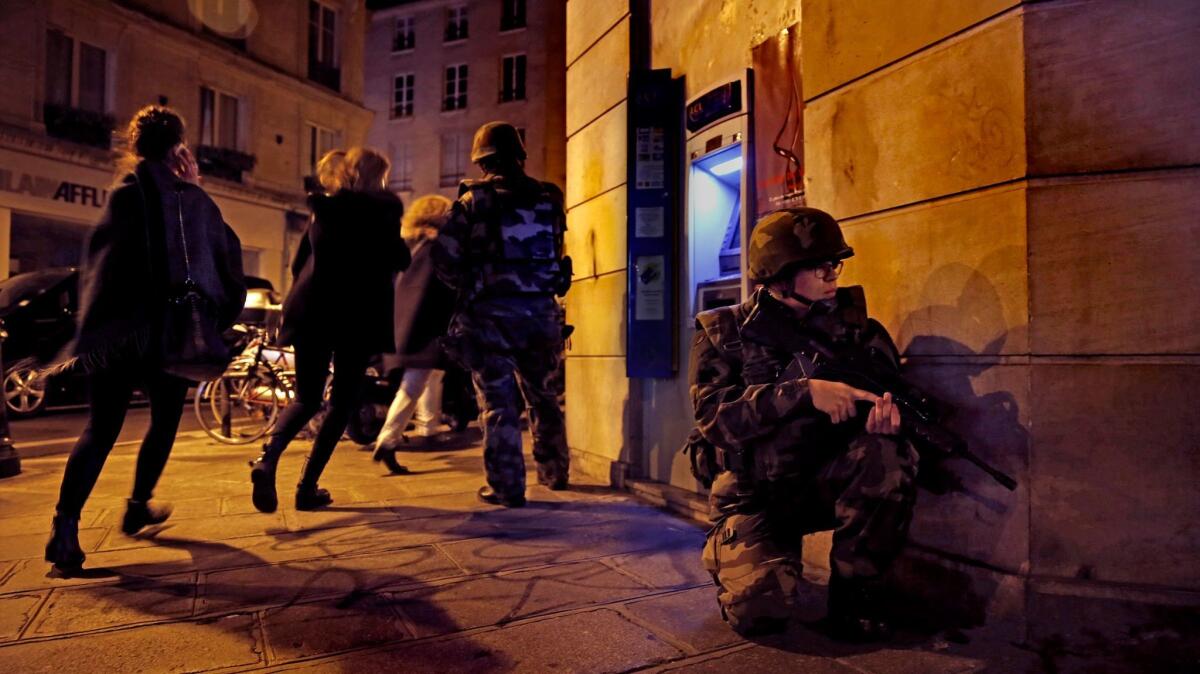Europol warns of fresh terror threats to Europe

Even as Islamic State loses ground in Iraq and Syria, its fighters still have the ability and the will to launch attacks in Europe, the European Unionās police agency warned Friday.
Several dozen fighters capable of committing terror attacks may already be present on the continent, and more are expected to join them if the group is defeated or severely weakened in the Middle East, Europolās European Counter Terrorism Center said in a report on militant tactics.
A separate analysis by German security authorities offered insight into the mind-set of those who have returned from Syria and Iraq. Only about 1 in 10 have grown disillusioned with the extremist ideology, according to the confidential report, which was obtained by the German newspaper Die Welt. Nearly half ā 48% ā remain committed to that world, it said.
Together, the reports offer a grim assessment of the continuing threat posed by Islamic State at a time when Iraqi forces, backed by the United States and other foreign allies, are attempting to drive the militants from their last major stronghold in that country.
High profile attacks ā including the gun and bomb assault on Paris nightspots that killed 130 people in November 2015 and bombings at a Brussels airport and subway station that killed 32 others in March ā demonstrate Islamic Stateās ability to quickly plan and carry out relatively complex operations, the Europol report said. Counter-terrorism officials believe such attacks could be coordinated from Libya in future.
The report also noted that the group has urged followers to launch attacks on their own using any means at their disposal. The devastating potential of such lone-wolf-style operations was demonstrated in July, when a truck plowed into a crowd of revelers who were celebrating Bastille Day in Nice, killing 85 people and injuring hundreds more.
Future assailants are likely to use some of the same tactics but may also deploy car bombs and other strategies from the battlefield in Iraq and Syria, Europol said.
āWe have to be vigilant, since the threat posed by the so-called Islamic State and returning foreign fighters is likely to persist in the coming years,ā said Gilles de Kerchove, counter-terrorism coordinator for the 28-member E.U., in a statement. āThese people are trained to use explosives and firearms and they have been indoctrinated by the jihadist ideology.ā
Rather than aim their attacks at the police or military, these fighters appear to have shifted their focus to soft targets in order to instill maximum fear in the population, the Europol report said.
This suggests that attacking critical infrastructure, such as power grids and nuclear facilities, is not currently a priority. Neither are cyber-attacks, in Europolās opinion, because of the comparatively low impact on the general public.
France remains high on Islamic Stateās target list, it said. The report mentioned several possible explanations, including the countryās position as a symbol Western culture, its economic and military engagement in predominantly Muslim nations in Africa and the Middle East, and the social and economic isolation of Muslims in some of its urban areas.
The report also cited Islamic Stateās āobsession with history and honor,ā saying the group blames France in particular for the breakup of the Ottoman Empire after World War I and the abolition of the caliphate, a form of Islamic rule.
It cautioned, however, that any EU member that has joined the U.S.-led coalition fighting Islamic State in Iraq and Syria is also a potential target. The militants also have an interest in staging attacks in Germany in order to turn public opinion against the influx of refugees from Syria, it added.
Authorities in Germany estimate that as many as 100 of their nationals were leaving each month to join the fight Syria and Iraq at the time Islamic State proclaimed its caliphate in 2014. But the new report said just 49 such departures were recorded between July 2015 and June 2016.
Of the 274 militants who are known to have returned to Germany, about a quarter cooperated with officials, providing information about the Islamist scene in Syria and at home, Die Welt reported. But the paper said that in about 8% of cases, the authorities believed that the returnees were simply taking a break from the battlefield or helping move money or equipment.
While Islamic State is the main group threatening Europe, Europol warned that Al Qaeda and other extremist factions remain a potential threat ā āand a reason for the EU to focus on a broader range of religiously inspired groups.ā
Special correspondent Erik Kirschbaum contributed to this report from Berlin.
MORE WORLD NEWS
As Colombia forges ahead with peace deal, bitterness lives on
āBad things happenā: How civilian deaths underscore the limits of the U.S. air war in Syria
82 major cities are meeting this week to talk about how to limit the worst effects of climate change
UPDATES:
2:35 a.m.: This article was updated with staff reporting and details of a separate report by German security authorities.
This article was originally published at 7:25 a.m.
More to Read
Sign up for Essential California
The most important California stories and recommendations in your inbox every morning.
You may occasionally receive promotional content from the Los Angeles Times.











